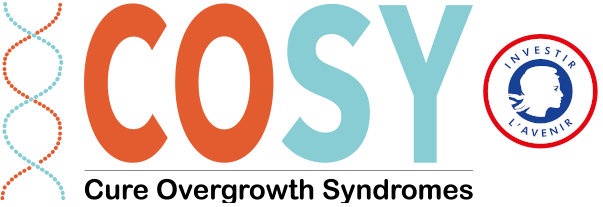We received mid-April 2022 an excellent news: Alpelisib was approved by the FDA for the treatment of patients with PIK3CA related disorders.
This is for Pr Guillaume Canaud, the coordinator of the RHU COSY, and his group a fantastic achievement. Indeed, they identified Alpelisib as a promising compound for the treatment of overgrowth syndromes in 2016. After promising data were obtained in a mouse model, they rapidly treated the first adult patient followed by a pediatric one and then 17 additional patients. These first results in human were extremely encouraging and published in the renowned scientific journal Nature.
Following the release of the article, a huge number of physicians and patients from all over the world manifested their interest for Alpelisib as a treatment for overgrowth syndromes. To meet the demand, the dedicated unit at Hôpital Necker – Enfant Malades, Paris, France had to be totally reorganized. Indeed, at that time, Pr Canaud’s team was performing patient genotyping daily, data were obtained in 3 weeks and, for all patients, therapeutic opportunities werediscussed in a multidisciplinary team in order to identify patients that could join a clinical trial with Alpelisib.
Thanks to the support of Novartis and several patient advocacy groups, the clinical trial named EPIK-P1 was set up and started in June 2020. Fifty-nine patients with PIK3CA-related overgrowth syndromes were included and received Alpelisib. Effect of Alpelisib was satisfactory with minimal side effects.
Data were presented for the first time on September 2021 at the ESMO meeting in the developmental therapeutic session and then examined by the FDA (US Food and Drug Agency). After few months and two inspections at the Hôpital Necker – Enfant Malades, FDA approved the use of Alpesilib for the treatment of PIK3CA-related overgrowth syndromes.
But this is not the end of the story for Guillaume Canaud and his group, in the meantime they developed new mouse models in order to better understand overgrowth disorders and how Alpesilib works. These data were also published in high impact factor journals such as Science Translational Medicine and Journal of Experimental Medicine.
The word of Guillaume Canaud:
“During the last few years, I had the chance to present our findings in many places and I was always surprised by the warm welcome that I received. All these trips have opened plenty of new collaboration, favored the growth of new projects and helped many patients. I would like to express my deepest gratitude to all our team members (clinical staff and researchers) that are fully dedicated to improve the wellbeing of our patients. I would like to thank the patients for their trust in us, the funding agencies that support us. But also, Editors and Reviewers for helping us to improve our reseach.”
